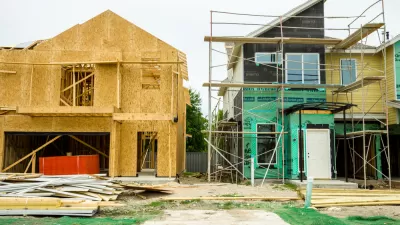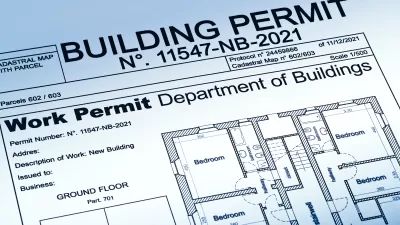While many policies that affect housing are decided on at the local level, there are several steps state officials can take to pave the way for healthier housing markets.

According to a study by Jenny Schuetz of The Brookings Institution, "the economic, social, and environmental costs of poorly functioning housing markets spill over beyond local boundaries to affect entire regions and states. State-level action has the potential to improve these outcomes," Schuetz writes.
The report outlines steps state governments can take to improve the conditions of housing markets and meet the needs of their state's populations. After analyzing their local conditions, states can encourage production in high-demand areas through production targets and other measures, provide direct support to low-income households, and use land use and building regulations to mitigate the effects of climate change. Schuetz stresses the importance of starting with "thoughtful data analysis" and, from there, using small-scale pilot programs to evaluate and adjust policies before putting them into full effect.
Schuetz cautions that "[b]ecause states currently start from such different baselines—both in market conditions and institutional capacity—there is not one consistent set of recommendations that will work for all states." However, some general rules can help all state officials begin to understand how to alter their state's policies to most effectively impact the housing market. The full study examines case studies from five states to show how they have used different tools to improve housing markets with their unique characteristics.
FULL STORY: States can improve housing well-being through thoughtfully designed policies

Maui's Vacation Rental Debate Turns Ugly
Verbal attacks, misinformation campaigns and fistfights plague a high-stakes debate to convert thousands of vacation rentals into long-term housing.

Planetizen Federal Action Tracker
A weekly monitor of how Trump’s orders and actions are impacting planners and planning in America.

Chicago’s Ghost Rails
Just beneath the surface of the modern city lie the remnants of its expansive early 20th-century streetcar system.

Bend, Oregon Zoning Reforms Prioritize Small-Scale Housing
The city altered its zoning code to allow multi-family housing and eliminated parking mandates citywide.

Amtrak Cutting Jobs, Funding to High-Speed Rail
The agency plans to cut 10 percent of its workforce and has confirmed it will not fund new high-speed rail projects.

LA Denies Basic Services to Unhoused Residents
The city has repeatedly failed to respond to requests for trash pickup at encampment sites, and eliminated a program that provided mobile showers and toilets.
Urban Design for Planners 1: Software Tools
This six-course series explores essential urban design concepts using open source software and equips planners with the tools they need to participate fully in the urban design process.
Planning for Universal Design
Learn the tools for implementing Universal Design in planning regulations.
planning NEXT
Appalachian Highlands Housing Partners
Mpact (founded as Rail~Volution)
City of Camden Redevelopment Agency
City of Astoria
City of Portland
City of Laramie





























